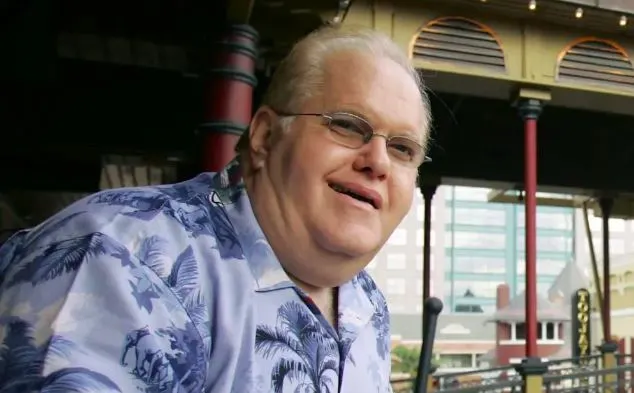
Lou Pearlman Net Worth and Bio of Music Mogul
Lou Pearlman, a name synonymous with the boy band craze of the 1990s and early 2000s, is a figure who left an indelible mark on the music industry. Known for creating and managing some of the most successful boy bands of the era, such as *NSYNC and the Backstreet Boys, Pearlman was a visionary entrepreneur who reshaped pop culture. However, his career was marred by scandal and controversy, culminating in one of the largest Ponzi schemes in history. This detailed article delves into Lou Pearlman’s net worth, his biography, and the complex legacy he left behind.
Lou Pearlman Rise to Fame in the Music Industry
Pearlman’s entry into the music industry was unconventional. He initially made his fortune through a blimp advertising company, Airship International, but his true calling was revealed when he shifted his focus to music. Inspired by the success of New Kids on the Block, Pearlman decided to create his own boy band. In 1993, he formed the Backstreet Boys, who quickly rose to international fame. The success of the Backstreet Boys was followed by *NSYNC, another boy band created by Pearlman. These groups became cultural phenomena, selling millions of albums and generating significant revenue through tours and merchandise.
The rise of these boy bands was a calculated move by Pearlman, who meticulously crafted their public personas and sound to appeal to a wide audience. He utilized innovative marketing strategies, leveraging the power of television and early internet platforms to reach fans globally. Pearlman’s influence extended beyond just managing the bands; he played a pivotal role in shaping the pop music landscape of the 1990s and early 2000s. Despite his lack of prior experience in the music industry, Pearlman’s business acumen and eye for talent propelled him to the forefront of the entertainment world, solidifying his reputation as a music mogul.
Lou Pearlman Business Ventures and Financial Success
At the peak of his career, Lou Pearlman’s net worth was estimated to be in the hundreds of millions. His company, Trans Continental Records, was the driving force behind several successful acts. Pearlman expanded his business empire to include a range of ventures, from reality TV shows to restaurants. His financial success was not limited to the music industry; he also invested in real estate and other businesses. However, his extravagant lifestyle and ambitious projects often raised eyebrows, leading to scrutiny and eventual legal troubles.
Pearlman’s business ventures were diverse and often ambitious. He was involved in numerous enterprises, including a talent scouting television show called “Making the Band,” which further expanded his influence in the entertainment industry. His investments in real estate were equally bold, with properties in Orlando and beyond. However, his rapid expansion and extravagant spending habits eventually drew the attention of regulators and investors. As his ventures grew, so did the suspicions about the legitimacy of his financial practices. Despite the outward appearance of success, Pearlman’s business empire was built on a fragile foundation of deceit and mismanagement, setting the stage for his eventual downfall.
Lou Pearlman Legal Issues and Downfall
In 2006, Lou Pearlman’s career took a dramatic and irreversible turn when it was uncovered that he had been orchestrating one of the largest Ponzi schemes in history. For over two decades, Pearlman deceived investors with a web of fake companies and fraudulent financial statements, convincing them to invest millions of dollars into non-existent enterprises. His primary fronts were Trans Continental Airlines and Trans Continental Savings Program, both of which existed only on paper. The unraveling of his scheme began when a few skeptical investors and journalists started probing deeper into the legitimacy of his businesses, leading to a domino effect of revelations.
The magnitude of Pearlman’s fraud came to light in 2007, leading to his arrest and a slew of charges, including conspiracy, money laundering, and making false statements during bankruptcy proceedings. The ensuing legal battle was swift and merciless, culminating in Pearlman receiving a 25-year prison sentence. His empire crumbled almost overnight, with assets seized and his reputation irrevocably damaged. The fallout from Pearlman’s actions was widespread, affecting hundreds of investors, employees, and the artists he managed. His downfall was not just a personal catastrophe but a significant event in financial crime history, highlighting the profound consequences of corporate fraud.
Lou Pearlman Legacy and Impact
Lou Pearlman’s legacy is a complex and multifaceted one, characterized by both groundbreaking achievements and devastating failures. On the one hand, Pearlman is credited with revolutionizing the music industry by creating some of the most iconic boy bands of all time. The Backstreet Boys and *NSYNC, under his management, became global phenomena, selling millions of records and becoming household names. His innovative approach to marketing and managing musical acts left an indelible mark on the industry, influencing how talent is developed and promoted to this day. The success of these groups significantly shaped pop culture in the late 1990s and early 2000s.
On the other hand, Pearlman’s legacy is deeply tarnished by his criminal activities. The financial ruin he caused for countless investors through his Ponzi scheme overshadowed his contributions to music. The betrayal felt by those who trusted him with their money, including many who lost their life savings, has left a lasting stain on his reputation. Pearlman died in prison on August 19, 2016, leaving behind a story that serves as a stark cautionary tale. His life illustrates the dangers of unchecked ambition and greed, reminding the world of the ethical boundaries that should govern even the most driven entrepreneurial pursuits. His story remains a potent example of the dual-edged nature of fame and fortune.
Conclusion
Lou Pearlman’s life was a rollercoaster of extraordinary success and spectacular failure. His ability to spot and nurture musical talent led to the creation of some of the most beloved boy bands in pop history, cementing his place in the annals of the music industry. The Backstreet Boys and *NSYNC, among others, are testaments to his keen eye for talent and innovative business strategies. However, his career is also a stark reminder of the perils of unchecked ambition and greed.
Pearlman’s legacy is double-edged. On one side, his contributions to pop culture through the boy bands he managed continue to resonate with fans worldwide. On the other, his involvement in one of the largest Ponzi schemes in history left a trail of financial devastation and personal ruin for countless individuals. His life story serves as a cautionary tale, illustrating how the pursuit of wealth and power, when left unchecked by ethical considerations, can lead to a dramatic and public downfall.
Ultimately, Lou Pearlman’s story is a complex narrative of ambition, creativity, deceit, and downfall. While his achievements in the music industry remain significant, his legacy is inextricably linked with the financial fraud that defined the latter part of his life. Pearlman’s tale is a reminder of the thin line between success and infamy and the lasting impact one’s actions can have on others.



